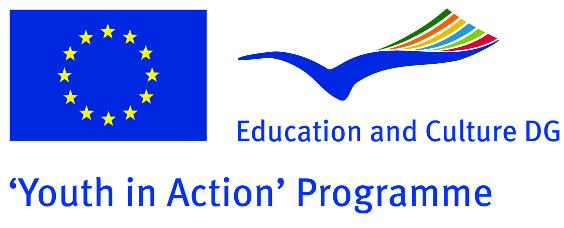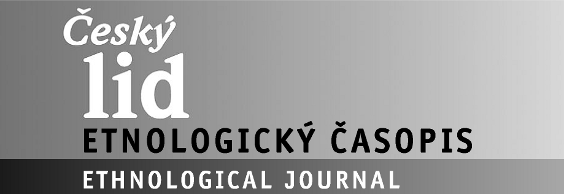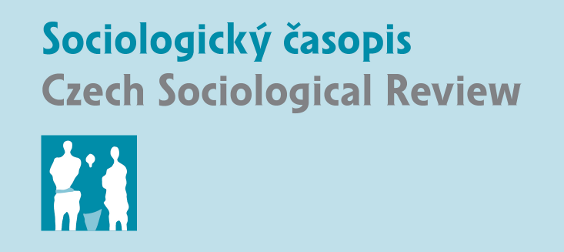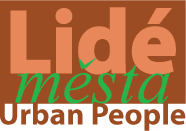MOVIES
Czech Republic, 2010, 57 min
Tomáš Kubák
29.01.2011 14:40
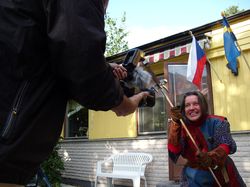 This documentary film is an insight into the lives of eight Czech families or individuals living permanently in Sweden. What has this country given them or taken away? What are their views on leaving Czechoslovakia and living in the North after forty years? How do they and their children who were born here perceive Sweden and the Swedish society? The film does not only peek inside the Czech families but also reveals the atmosphere of Swedish towns and villages and tinges everything with original Czech and Swedish music.
This documentary film is an insight into the lives of eight Czech families or individuals living permanently in Sweden. What has this country given them or taken away? What are their views on leaving Czechoslovakia and living in the North after forty years? How do they and their children who were born here perceive Sweden and the Swedish society? The film does not only peek inside the Czech families but also reveals the atmosphere of Swedish towns and villages and tinges everything with original Czech and Swedish music.
Director, camera, edit: Tomáš Kubák
Tomáš Kubák is a typographer, cameraman and director of travel films. He is cooperated with International Czech Club and make documents about Czech abroad.
Production Martina Fialková, Mezinárodní český klub,o.s., Czech Republic
Language of dialogues: Czech
Language of subtitles: No subtitles
Russia, 2008, 26 min
Ivan Golovnev
29.01.2011 17:20
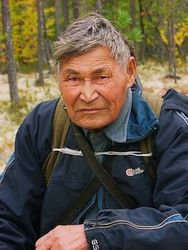 This film takes us into the world of old man Peter Sengepov, tha last surviving Shaman of the Kazym River, who lives alone in the depths of the Siberian taiga. The region of the Khanty people is the basic source of oil recovery in Russia. About 70 percent of all Rusian oil is extracted here. The oil companies actively buy huge territories in the North of Siberia. Indigenous people are compelled to leavethese places, their own patrimonial territories, and do a modern civilization gradually absorbs an ancient culture.
This film takes us into the world of old man Peter Sengepov, tha last surviving Shaman of the Kazym River, who lives alone in the depths of the Siberian taiga. The region of the Khanty people is the basic source of oil recovery in Russia. About 70 percent of all Rusian oil is extracted here. The oil companies actively buy huge territories in the North of Siberia. Indigenous people are compelled to leavethese places, their own patrimonial territories, and do a modern civilization gradually absorbs an ancient culture.
Director, Camera: Ivan Golovnev
Was born in 1978. Graduated at the Omsk State University. In 2002 finished college at the Sverdlovsk Film Studio in Ekaterinburg, department of directors of cinema and TV. In 2005 finished the Highest Courses of Film Writers and Directors in Moscaw. Winner and participant of the international film festivals and film projects.
Production: Ethnographic Bureau Studio, Ekaterinburg, Russia
Edit: Yuri Yatsencko
Language od dialogues: Russian, Khanty
Language of subtitles: English
Awards(selection):
Best international documentary at the International Film Festival CORTOPTERE, Italy 2008
Best international documentary at the International Teheran Short Film Festival, Iran 2008
Prize of the Directorate of the SHAKEN STARS International Film Festival, Kazakhstan2009
Best short documentary at the International "Gold Panda" Awards, China 2009
Special Mention of International Jury at the Festival de Aguilar de Campoo, Spain 2009
Audience Award at the ESPIELLO International Film Festival , Spain 2010
Prize of the Jury at the "Toamna la Voronet" International Film Festival, Romania 2010
Special Mention of the International Jury at the InkaFest Mountain Film Festival, Peru 2010
Special Mention for editing at the XIX International Festival of Ethnological Film, Serbia 2010
Grand prize at the XII "Finno-Ugric World" International Film Festival, Russia 2010
Switzerland/Cambodia, 2010, 50 min
Tommi Mendel, Brigitte Nikles
28.01.2011 19:10
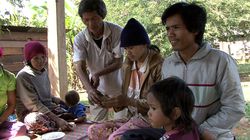 On the basis of a social anthropological case study, this film documents the birth practices of the Bunong in Mondulkiri province, located in the northeast of Cambodia. Social, economic and political changes are transforming the province tremendously and are affecting villagers´ beliefs, perceptions and habits regarding pregnancy, delivery and early motherhood. Traditional midwives, pregnant women, mothers and their families give a personal insight into their present decision-making strategies, which are at the crossroads between tradition and modernity.
On the basis of a social anthropological case study, this film documents the birth practices of the Bunong in Mondulkiri province, located in the northeast of Cambodia. Social, economic and political changes are transforming the province tremendously and are affecting villagers´ beliefs, perceptions and habits regarding pregnancy, delivery and early motherhood. Traditional midwives, pregnant women, mothers and their families give a personal insight into their present decision-making strategies, which are at the crossroads between tradition and modernity.
Directors: Tommi Mendel, Brigitte Nikles
Tommi and Brigitte both studied Anthropology at the University of Zurich. Currently Brigitte is working in Mondulkiri in Cambodia to establish a Bunong Cultural Centre and Tommi is working on his PhD with the means of Ethnographic Film.
Production: Tigertoda productions, Zurich, Switzerland
Camera, Edit: Tommi Mendel
The movie was projected on various world film festivals (selection):
NAFA International Ethnographic Film Festival, Aarhus, Denmark 2010
International Festival of Visual Anthropology Mediating Camera, Moscow, Russia 2010
Cambodia International Film Festival, Phom Phen, Cambodia 2010
International Festival of Ethnological Film, Belgrade, Serbia 2010
Contro-Sguardi International Anthropological Film Festival, Perugia, Italy 2010
Athens Ethnographic Film Festival, Greece 2010
Language of dialogues: Bunong, Khmer
Language of subtitles:Czech, English
 This documentary film is an insight into the lives of eight Czech families or individuals living permanently in Sweden. What has this country given them or taken away? What are their views on leaving Czechoslovakia and living in the North after forty years? How do they and their children who were born here perceive Sweden and the Swedish society? The film does not only peek inside the Czech families but also reveals the atmosphere of Swedish towns and villages and tinges everything with original Czech and Swedish music.
This documentary film is an insight into the lives of eight Czech families or individuals living permanently in Sweden. What has this country given them or taken away? What are their views on leaving Czechoslovakia and living in the North after forty years? How do they and their children who were born here perceive Sweden and the Swedish society? The film does not only peek inside the Czech families but also reveals the atmosphere of Swedish towns and villages and tinges everything with original Czech and Swedish music.
 This film takes us into the world of old man Peter Sengepov, tha last surviving Shaman of the Kazym River, who lives alone in the depths of the Siberian taiga. The region of the Khanty people is the basic source of oil recovery in Russia. About 70 percent of all Rusian oil is extracted here. The oil companies actively buy huge territories in the North of Siberia. Indigenous people are compelled to leavethese places, their own patrimonial territories, and do a modern civilization gradually absorbs an ancient culture.
This film takes us into the world of old man Peter Sengepov, tha last surviving Shaman of the Kazym River, who lives alone in the depths of the Siberian taiga. The region of the Khanty people is the basic source of oil recovery in Russia. About 70 percent of all Rusian oil is extracted here. The oil companies actively buy huge territories in the North of Siberia. Indigenous people are compelled to leavethese places, their own patrimonial territories, and do a modern civilization gradually absorbs an ancient culture. On the basis of a social anthropological case study, this film documents the birth practices of the Bunong in Mondulkiri province, located in the northeast of Cambodia. Social, economic and political changes are transforming the province tremendously and are affecting villagers´ beliefs, perceptions and habits regarding pregnancy, delivery and early motherhood. Traditional midwives, pregnant women, mothers and their families give a personal insight into their present decision-making strategies, which are at the crossroads between tradition and modernity.
On the basis of a social anthropological case study, this film documents the birth practices of the Bunong in Mondulkiri province, located in the northeast of Cambodia. Social, economic and political changes are transforming the province tremendously and are affecting villagers´ beliefs, perceptions and habits regarding pregnancy, delivery and early motherhood. Traditional midwives, pregnant women, mothers and their families give a personal insight into their present decision-making strategies, which are at the crossroads between tradition and modernity.